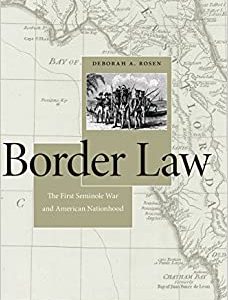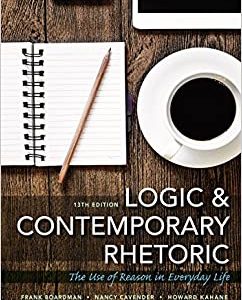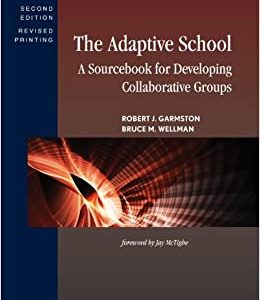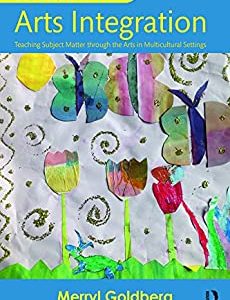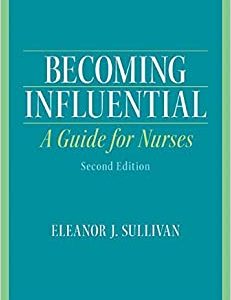Overview
With its unique union of theory and application and its well-organized, easy-to-use design, Moral Choices has earned its place as the standard text for college ethics courses. This third edition offers extensive updates, revisions, and brand new material, all designed to help students develop a sound and current basis for making ethical decisions in today?s complex postmodern culture. Moral Choices outlines the distinctive elements of Christian ethics while avoiding undue dogmatism. The book also introduces other ethical systems and their key proponents, including Plato, Aristotle, Augustine, Aquinas, and Kant. After describing a seven-step procedure for tackling ethical dilemmas, author Scott Rae uses case studies to help students think critically and biblically about ? Abortion ? Reproductive Technologies ? Euthanasia ? Capital Punishment ? Sexual Ethics ? The Morality of War ? Genetic Technologies and Human Cloning ? NEW: Ethics and Economics New features include online resources for instructors; a chapter covering global capitalism, environmental ethics, and business ethics; new material on bioethics and on stem cell and embryo research; discussion questions at the end of each chapter; and sidebars with case studies.
Product Details
| ISBN-13: | 9780310536437 |
|---|---|
| Publisher: | Zondervan Academic |
| Publication date: | 10/16/2018 |
| Sold by: | HarperCollins Publishing |
| Format: | NOOK Book |
| Pages: | 528 |
| Sales rank: | 565,115 |
| File size: | 2 MB |
About the Author
Read an Excerpt
INTRODUCTION: WHY STUDY ETHICS?
In Plato?s classic work The Republic, the myth of Gyges sets out the question, Why be moral? Gyges was given the opportunity to live life as an invisible entity, able to do anything he wanted to do with no one ever discovering what he had done. That is, he could do whatever he wanted and would be assured of getting away with it. Given the chance to live life like this, the question Plato raises is, Would a person want to be moral? After a good deal of dialogue, Plato concluded that being moral was inherently valuable, apart from any additional benefits it produced or harm that it enabled a person to avoid.
How would you respond to the question, Why be moral? Since the moral life and moral decision making are the focal points of this book, this question is foundational. If you decide that being moral is not that important, then you probably will not spend much time reading this or any other book on ethics. But if being moral is important to you, then the content of this book will hopefully be helpful in shaping how you view morality.
Most people, when they are genuinely honest with themselves, still associate doing well in life with being a good person. Having moral character is still essential to most people?s conceptions of what makes a person flourish in his or her life. For example, it is difficult to imagine a person being considered a success in life if he has gained his wealth dishonestly. It is equally difficult to call a person a success who is at the top of his profession, but cheats on his wife, abuses his children, and drinks too much. On the other hand, we rightly hold up a person like Mother Teresa as a model of living a good life, even though she lacks most material goods that society values. One of the principal reasons for being moral is that it is central to most concepts of human fulfillment. For the Christian, being moral is critical to a life that seeks to honor God. We could say that being moral is inherently good because it is foundational to a person?s flourishing in life, since doing well in life and being a good person still go together for most people.
The same holds true for society as a whole. Most people would not want to live in a society in which morality was unimportant, in which conceptions of right and wrong carried little weight. In fact, it is unlikely that any sort of civilized society could continue unless it had concern for important moral values such as fairness, justice, truthfulness, and compassion. Ethics are important because they give direction to people and societies, who have some sense that they cannot flourish without being moral.
Ethics are important because moral questions are at the heart of life?s most important issues. Morality is primarily concerned with questions of right and wrong, the ability to distinguish between the two, and the justification of the distinction. Closely related are questions like, What is a good person? What things are morally praiseworthy? What constitutes a good life? and What would a good society look like? These are fundamental to your view of the world. You cannot formulate an adequate worldview without providing answers to these moral questions. A wide variety of professions, whether or not they realize it, actually deal with moral questions. For example, morality is fundamental to politics, since politics and the law concern the way in which people order their lives together in society.
Ethics are also important because you face moral choices every day. Every so often you will face emotionally wrenching moral dilemmas that have no easy answers. Many decisions you will make on a day-to-day basis also involve questions of right and wrong. Ethics provide the basis on which you make those decisions. Most people have some kind of an idea of what sorts of things are right and wrong. Explaining why you think something is right or wrong or whether a particular person is good or evil, however, is altogether another question. The basis on which you make moral choices is often as important as the choices themselves. Yet, few people have thought through the way in which they justify their conceptions of right and wrong.
Finally, ethics are important in facing a number of issues, including abortion, euthanasia, homosexuality, war, and capital punishment. Debates on issues such as these seem endless and irreconcilable, and they promise to continue far into the future. What many of these issues share is a fundamental disagreement over the ultimate source of moral authority. Some individuals hold that moral authority is ultimately a human construction, while others insist that moral authority comes from some transcendent source that is beyond human beings, such as a revelation from God or nature. As you read the newspaper and various newsmagazines and listen to television news, you will be increasingly aware of the importance of these issues. You will also notice that, apart from legal intervention, these issues are no closer to being resolved today than they were ten years ago.
Table of Contents
1. Introduction: Why Study Ethics?
2. Christian Ethics
3. Major Figures in the History of Ethics
4. Ethical Systems and Ways of Moral Reasoning
5. Making Ethical Decisions
6. Abortion
7. Reproductive Technologies
8. Euthanasia
9. Capital Punishment
10. Sexual Ethics
11. The Morality of War
12. Legislating Morality
Indexes
What People are Saying About This
?Scott Rae is one of the leading Evangelical ethicists in North America, and this thoroughly updated version of Moral Choices features the excellence we have come to expect from his pen. Based on its breadth of coverage, depth of insight, and accessibility of style, it is now the go-to text for colleges and seminaries. It is also a must read for pastors and laypersons who want to be informed about the ethical issues of our day. I highly recommend it.? ? J. P. Moreland
? Moral Choices is characterized by particular strength in its discussion of ethical methodology, its approach to bioethical and business ethics issues, its accessibility and readability, its use of cases and discussion questions, and its engagement with a wide range of both secular and Christian thinkers through the ages. It is conservative and evangelical while remaining irenic and dialogical.? ? David P. Gushee
?Moral Choices is an outstanding text for an introductory course in bioethics. The survey of philosophical thinking throughout history sets the context for dialogue. The model that is presented is especially useful for beginning students. Our classes work through the model to learn the principles, and then apply that model to 1-2 topics, working in depth. As a result, its strengths and weaknesses are revealed. Then, students are able to understand the challenges associated with bioethical issues. This enables them to be equipped for issues that are arising. Moral Choices has been a foundational component to accomplish this.? Mount Vernon Nazarene University ? Paul Madtes Jr.
?This is a well-crafted introduction to Christian ethics. Professor Rae exhibits in his work the very virtues that he extols his readers to emulate. His love of learning, Christ, and the good, the true, and the beautiful comes through loud and clear. Although one may find oneself disagreeing with Professor Rae, as I do on a few issues, you will be more informed, challenged, and enlightened as a consequence of reading this book.? ? Francis J. Beckwith, Professor




